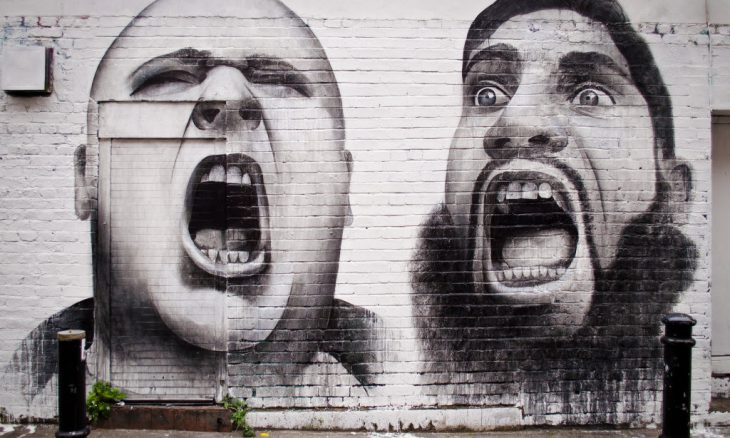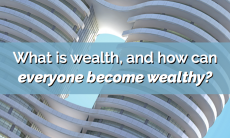When I fell in love with social media a decade ago, I was convinced that media democratization would be the best thing for informed political discourse since the invention of television. Unfettered access to a diverse world of perspectives would make us more enlightened, tolerant, and aware. Empowered with boundless information, we would make more informed decisions based on consideration of many points of view.
I could not have been more wrong. The presidential campaign that has unfurled in the US over the past several months and the Brexit vote in the UK two weeks ago have been the latest examples of the horror show of misinformation, finger-pointing, and vitriol that characterizes divisive issues. The U.S. is more politically polarized than it has been since the Vietnam War, and nothing appears likely to change that. Robert Gates, who served under eight presidents, recently called the current presidential campaign “superficial.”
How did access to information actually make us less informed?
I think the unintended consequences of social media are an important factor. In an analysis of the Brexit vote, The Brookings Institution’s Dhruva Jaishankar explains how social media has enabled misinformation to flourish while dumbing down discussion of important issues.
As mainstream media organizations- who have traditionally been trusted arbiters of truth- have downsized or disappeared, new media sources have emerged, Jaishankar writes. Often these sources have an agenda, and they scorn journalistic standards of attribution or even basic fact-checking. This enables memes like the persistent doubts about President Obama’s birthplace to linger years after the facts are known.
Whom to trust?
The decline of mainstream media that social channels have helped perpetuate worsens the problem. People trust their social networks more than media, Jaishankar writes. Misinformation circulated between circles of friends takes on validity because it comes from trusted sources. On top of this is the “echo chamber” effect. With the influence of impartial arbiters declining, people gravitate to sources that reflect their own points of view. Discussion between people who think alike reinforces existing biases.
The result is that parties and platforms are becoming less relevant as polarized interest groups hurl insults at each other. This makes for great theater, as the devolution of TV news into a circus of shouting matches has shown. “The unintended consequences of digital democracy — misinformation and discontent, polarization and gridlock — mean that the boundary between politician and troll is blurring,” Jaishankar writes. “The tone of democratic politics increasingly reflects that of anonymous online discourse: nasty, brutish, and short.”
To this, I would add a couple of other factors. As much as I love Twitter, I have been dismayed by the way it has undermined thoughtful discussion of complex issues in the name of turning everything into sound bites. The media’s love affair with the platform only makes this worse. Twitter is a TV news and producer’s dream: short, pithy and provocative. Unfortunately, isolated tweets don’t represent popular opinion, and they lack depth by their very nature. This doesn’t stop cable news and news websites from leaning on them as a substitute for the first-hand quotations that reporters no longer have the time to secure.
Social media has also made our discussions anonymous and asynchronous. It’s easy to blast insults at people we disagree with on Facebook, where there is no expectation of a give-and-take. Watching the stomach-turning exchange of social media cannon volleys over Donald Trump or the gun debate leaves little hope that the two sides will even try to understand each other, much less come to a consensus.
In a recent story in the Chicago Tribune about the retirement of Garrison Keiller, the folk humorist comments, “In looking down on things, we give up ever understanding them.” Social media gives us an unprecedented opportunity to engage and learn from others. Will we ultimately realize that potential or continue to use our digital soapboxes to shout into the darkness?
Photo by Garry Knight via Flickr CC








